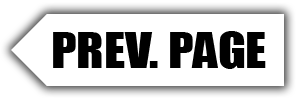This connecting rod failure can be traced back to improper preload on the rod bolt, where the fastener was able to"work" loose. Improper preload (too much or not enough)is the primary cause of fastener failure. |
The experts’ consensus is that the majority of fastener failures can be traced to improper preload (torquing).
It’s important to note that fasteners “act” like a return spring, inasmuch as they must be stretched a certain amount to achieve a specific clamping load. A small block Chevy rod bolt, by way of example, needs to be stretched .006” to achieve an approximate 12,000 lb. clamping force. The amount of required stretch and applied force will, of course, vary by the size of the fastener, material and heat-treat. If the rod bolt isn’t properly preloaded it can eventually work loose from all the forces exerted on the rod, or if it’s stretched too much it can be compromised and fail. As a matter of habit, rod bolts should be measured prior to engine assembly and their length noted. When servicing the engine the bolts should again be measured. If any have taken a permanent stretch of .001” or more they should be replaced immediately.
 |
 |
| ARP field rep Rick Feaster is shown testing a racer's torque wrench, a free service offered at all NHRA national events. Years of testing wrenches has shown many to be inaccurate, which can cause improper fastener preloading. | Here's an engine block fitted with ARP head studs. Use of studs (instead of head bolts) is preferred in racing environments and on any aluminum block. |
Because measuring fastener stretch is an absolute, use of a rod bolt stretch gauge is highly recommended by ARP.
Of course, the majority of fasteners used to assemble an engine and driveline are “blind” and you cannot measure stretch. This leaves two alternatives: using a torque wrench or employing “torque angle” procedures. Everyone can use the former; the latter is best suited to a repetitive assembly line process and is favored by Detroit automakers.
Since racing engines are most always assembled using a torque wrench, let’s start there.
But first, it’s important to make sure the wrench has been calibrated for accuracy. ARP has been offering free torque wrench testing at NHRA events and it’s surprising how many are inaccurate —some by as much as 30%. Racers are invited to take their wrenches to the Hyatt Racing Services trailer on the Manufacturer’s Midway at all NHRA National events for a free check-up.



